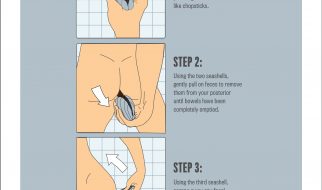My theme for 2019 is ?focus.? Focus on the work and projects that matter, the people I really care about, and, most of all, focus of the mind. If you?re anything like me ? an overthinking introvert with a mind that?s always on ? that last one is especially difficult.
Part of it?s just human nature. Our brains are wired to look for problems. To obsess over an issue we can fix. Until we create a solution, which gives us a short burst of relief. Then, it?s on to the next thing.
But for introverts, it?s particularly easy to get stuck on the obsession part. Our default response to almost anything is to think up a maze in our mind, then zip through it until we?ve explored every corner. Like a mouse looking for cheese, even if there?s none to be found.
One of the few things that?s helped me stop spinning in circles in my own head is Zen stories. I?m not sure why. Maybe, I can relate to the imagery associated with Buddhist monks. Maybe, I?m a sucker for allegories. In any case, while some people might think they?re cheesy, they work for me.
When my mind is cloudy, a Zen story can clear it up. When I?m frantic, it calms me down. And when I?m too close to the trees to see the forest, it helps me see.
You may not be an introvert or compulsive thinker, but I hope you?ll still benefit from the following seven stories. I know they?ve done wonders for me.
A man went to a Buddhist monastery for a silent retreat. After he finished, he felt better, calmer, stronger, but something was missing. The teacher said he could talk to one of the monks before he left.
The man thought for a while, then asked: ?How do you find peace??
The monk said: ?I say yes. To everything that happens, I say yes.?
When the man returned home, he was enlightened.
This one is actually real. The man is Kamal Ravikant. In an interview, he shares his interpretation of the monk?s advice:
?Most of our pain, most of our suffering comes from resistance to what is. Life is. And when we resist what life is, we suffer. When you can say yes to life, surrender to life and say: ?Okay, what should I be now?? That?s where power comes from.?
When the weather is bad, when your crush won?t answer, when the obstacle won?t budge, don?t say no. Don?t dig in your heels and push and shove until your veins pop out in frustration. Say yes. Accept. Breathe. Life is flowing. Always. It?s us trying to swim upstream. Let the current carry you instead.
2. The Girl At The River
A senior monk and a junior monk were traveling together. At one point, they came to a river with a strong current. As the monks were preparing to cross the river, they saw a very young and beautiful woman also attempting to cross. The young woman asked if they could help her cross to the other side.
The two monks glanced at one another because they had taken vows not to touch a woman.
Then, without a word, the older monk picked up the woman, carried her across the river, placed her gently on the other side, and carried on his journey.
The younger monk couldn?t believe what had just happened. After rejoining his companion, he was speechless, and an hour passed without a word between them.
Two more hours passed, then three. Finally, the younger monk could not contain himself any longer and blurted out: ?As monks, we are not permitted a woman, how could you then carry that woman on your shoulders??
The older monk looked at him and replied: ?Brother, I set her down on the other side of the river, why are you still carrying her??
Resisting to what life is trying to tell you is exhausting, but resisting to what life has already told you is guaranteed to be in vain. What?s done is done.
If you feel guilty, it was a mistake you can fix. If you feel ashamed, it was a mistake you shouldn?t repeat. But regret? That?s just dragging a past event into the present. It?s a toxic attempt to twist reality. And it always backfires.
3. The Crystal Cup
A Zen master was given a beautifully crafted crystal cup. It was a gift from a former student.
He was very grateful. Every day, he enjoyed drinking out of his glass. He would show it to visitors and tell them about the kindness of his student.
But every morning, he held the cup in his hand for a few seconds and reminded himself: ?This glass is already broken.?
One day, a clumsy visitor toppled the glass on its shelf. The cup fell down. When it hit the floor, it was smashed into thousands of tiny pieces.
The other visitors gasped in shock, but the Zen master remained calm. Looking at the mess in front of his feet, he said: ?Ah. Yes. Let?s begin.?
He picked up a broom and started sweeping.
I found the idea for this in The Daily Stoic by Ryan Holiday. About a year ago, I wrote that ?half of happiness is being okay with what you don?t get.? Now, I think I know what the other half is: being okay with losing what you have.
The man who remembers to be grateful for his possessions is ahead of most. But the man who knows they won?t last is ahead of him still. Be the second.
4. The Bowl
A monk told Joshu: ?I have just entered the monastery. Please teach me.?
Joshu asked: ?Have you eaten your rice porridge??
The monk replied: ?I have eaten.?
Joshu said: ?Then you had better wash your bowl.?
At that moment the monk was enlightened.
I can only echo what Leo Babauta said about this story:
?There is something profound and yet minimalist about this advice. It?s: don?t get your head caught up in all this thinking about the meaning of life ? instead, just do. Just wash your bowl. And in the washing, you?ll find all you need.?
We think we do, but, most of the time, there?s no need to think or plan or strategize, because, ultimately, it won?t make a big difference which option we choose. There?s always one or multiple next steps to take. So we might as well take any one of them. Often, there?s more satisfaction to be drawn from doing.
No matter how our path unfolds, mindfulness always lies on the way.
5. The Move
Two men visit a Zen master.
The first man says: ?I?m thinking of moving to this town. What?s it like??
The Zen master asks: ?What was your old town like??
The first man responds: ?It was dreadful. Everyone was hateful. I hated it.?
The Zen master says: ?This town is very much the same. I don?t think you should move here.?
The first man leaves and the second man comes in.
The second man says: ?I?m thinking of moving to this town. What?s it like??
The Zen master asks: ?What was your old town like??
The second man responds: ?It was wonderful. Everyone was friendly and I was happy. Just interested in a change now.?
The Zen master says: ?This town is very much the same. I think you will like it here.?
What we seek is what we find. The reasons why you do what you do matter as much, if not more, as what you end up doing. Because they shape how you seek. So, ultimately, they?ll also determine what you find.
6. The Teacup
A learned man once went to visit a Zen teacher to inquire about Zen. As the Zen teacher talked, the learned man frequently interrupted to express his own opinion about this or that. Finally, the Zen teacher stopped talking and began to serve teato the learned man. He poured the cup full, then kept pouring until the cup overflowed.
?Stop,? said the learned man. ?The cup is full, no more can be poured in.?
?Like this cup, you are full of your own opinions,? replied the Zen teacher. ?If you do not first empty your cup, how can you taste my cup of tea??
Here?s an interesting question: What if the two men from before came from the same town? All we have to judge the world with are our own little measuring sticks. Our biased, subjective, arbitrary measuring sticks.
They rarely get the job done. Empathy, however, always works. Seeing the world through other people?s eyes is like throwing out the stick: You can?t do it without widening your perspective. It?s never easy and, sometimes, it ends up being unnecessary. But it should always be the first thing you try.
7. The Four Candles
Four monks decided to meditate silently without speaking for two weeks. They lit a candle as a symbol of their practice and began. By nightfall on the first day, the candle flickered and then went out.
The first monk said: ?Oh, no! The candle is out.?
The second monk said: ?We?re not supposed to talk!?
The third monk said: ?Why must you two break the silence??
The fourth monk laughed and said: ?Ha! I?m the only one who didn?t speak.?
They all had different reasons, but each of the four monks shared his thoughts without filtering them ? none of which improved the situation. Had there been a fifth, wiser monk, he would?ve remained silent and kept meditating.
This way, he would?ve pointed out their mistakes without a single word. Without breaking his own quest for better. Done long enough, talking inevitably leads to embarrassing yourself. Listening leads to learning.
The less you speak, the smarter you get. And, maybe not quite coincidentally, the smarter you get, the less you speak.
Maybe, we?re not meant to roam the world in a perpetual state of carefree, ignorant bliss. But we?re also not mere rats in a maze. Thinking is good. Solving problems is useful. Overthinking problems is not.
Like zen, focus is a lifelong practice. We?ll fail many times along the way but remember: the best distraction is a good story. Who knows? It just might get you back on track.

